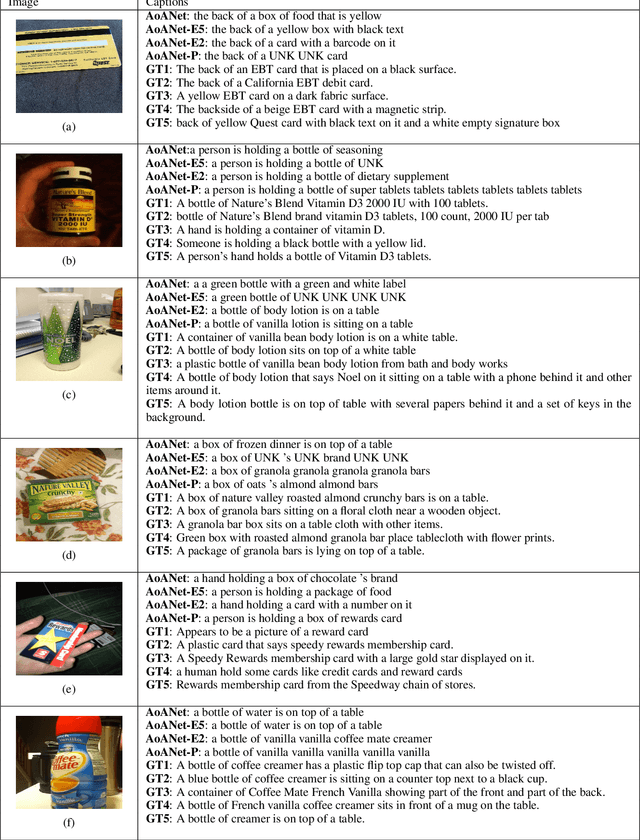Nikita Bhalla
CRAG -- Comprehensive RAG Benchmark
Jun 07, 2024



Abstract:Retrieval-Augmented Generation (RAG) has recently emerged as a promising solution to alleviate Large Language Model (LLM)'s deficiency in lack of knowledge. Existing RAG datasets, however, do not adequately represent the diverse and dynamic nature of real-world Question Answering (QA) tasks. To bridge this gap, we introduce the Comprehensive RAG Benchmark (CRAG), a factual question answering benchmark of 4,409 question-answer pairs and mock APIs to simulate web and Knowledge Graph (KG) search. CRAG is designed to encapsulate a diverse array of questions across five domains and eight question categories, reflecting varied entity popularity from popular to long-tail, and temporal dynamisms ranging from years to seconds. Our evaluation on this benchmark highlights the gap to fully trustworthy QA. Whereas most advanced LLMs achieve <=34% accuracy on CRAG, adding RAG in a straightforward manner improves the accuracy only to 44%. State-of-the-art industry RAG solutions only answer 63% questions without any hallucination. CRAG also reveals much lower accuracy in answering questions regarding facts with higher dynamism, lower popularity, or higher complexity, suggesting future research directions. The CRAG benchmark laid the groundwork for a KDD Cup 2024 challenge, attracting thousands of participants and submissions within the first 50 days of the competition. We commit to maintaining CRAG to serve research communities in advancing RAG solutions and general QA solutions.
Improving Opinion-based Question Answering Systems Through Label Error Detection and Overwrite
Jun 13, 2023Abstract:Label error is a ubiquitous problem in annotated data. Large amounts of label error substantially degrades the quality of deep learning models. Existing methods to tackle the label error problem largely focus on the classification task, and either rely on task specific architecture or require non-trivial additional computations, which is undesirable or even unattainable for industry usage. In this paper, we propose LEDO: a model-agnostic and computationally efficient framework for Label Error Detection and Overwrite. LEDO is based on Monte Carlo Dropout combined with uncertainty metrics, and can be easily generalized to multiple tasks and data sets. Applying LEDO to an industry opinion-based question answering system demonstrates it is effective at improving accuracy in all the core models. Specifically, LEDO brings 1.1% MRR gain for the retrieval model, 1.5% PR AUC improvement for the machine reading comprehension model, and 0.9% rise in the Average Precision for the ranker, on top of the strong baselines with a large-scale social media dataset. Importantly, LEDO is computationally efficient compared to methods that require loss function change, and cost-effective as the resulting data can be used in the same continuous training pipeline for production. Further analysis shows that these gains come from an improved decision boundary after cleaning the label errors existed in the training data.
Multi-Modal Image Captioning for the Visually Impaired
May 17, 2021


Abstract:One of the ways blind people understand their surroundings is by clicking images and relying on descriptions generated by image captioning systems. Current work on captioning images for the visually impaired do not use the textual data present in the image when generating captions. This problem is critical as many visual scenes contain text. Moreover, up to 21% of the questions asked by blind people about the images they click pertain to the text present in them. In this work, we propose altering AoANet, a state-of-the-art image captioning model, to leverage the text detected in the image as an input feature. In addition, we use a pointer-generator mechanism to copy the detected text to the caption when tokens need to be reproduced accurately. Our model outperforms AoANet on the benchmark dataset VizWiz, giving a 35% and 16.2% performance improvement on CIDEr and SPICE scores, respectively.
 Add to Chrome
Add to Chrome Add to Firefox
Add to Firefox Add to Edge
Add to Edge